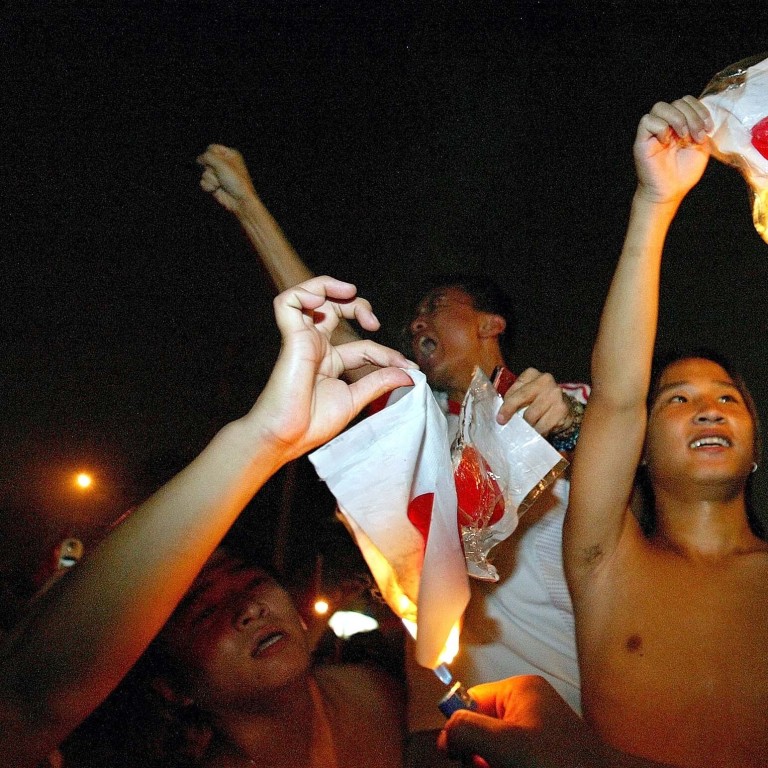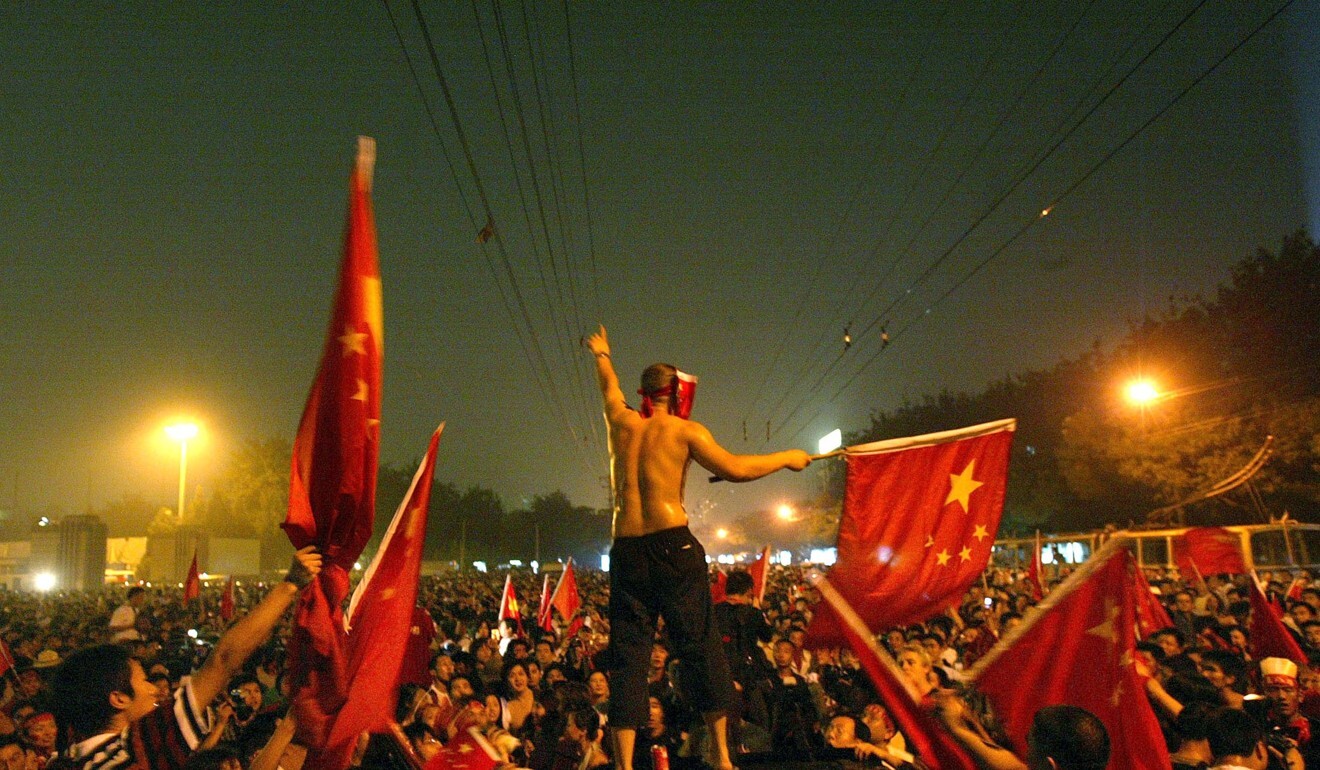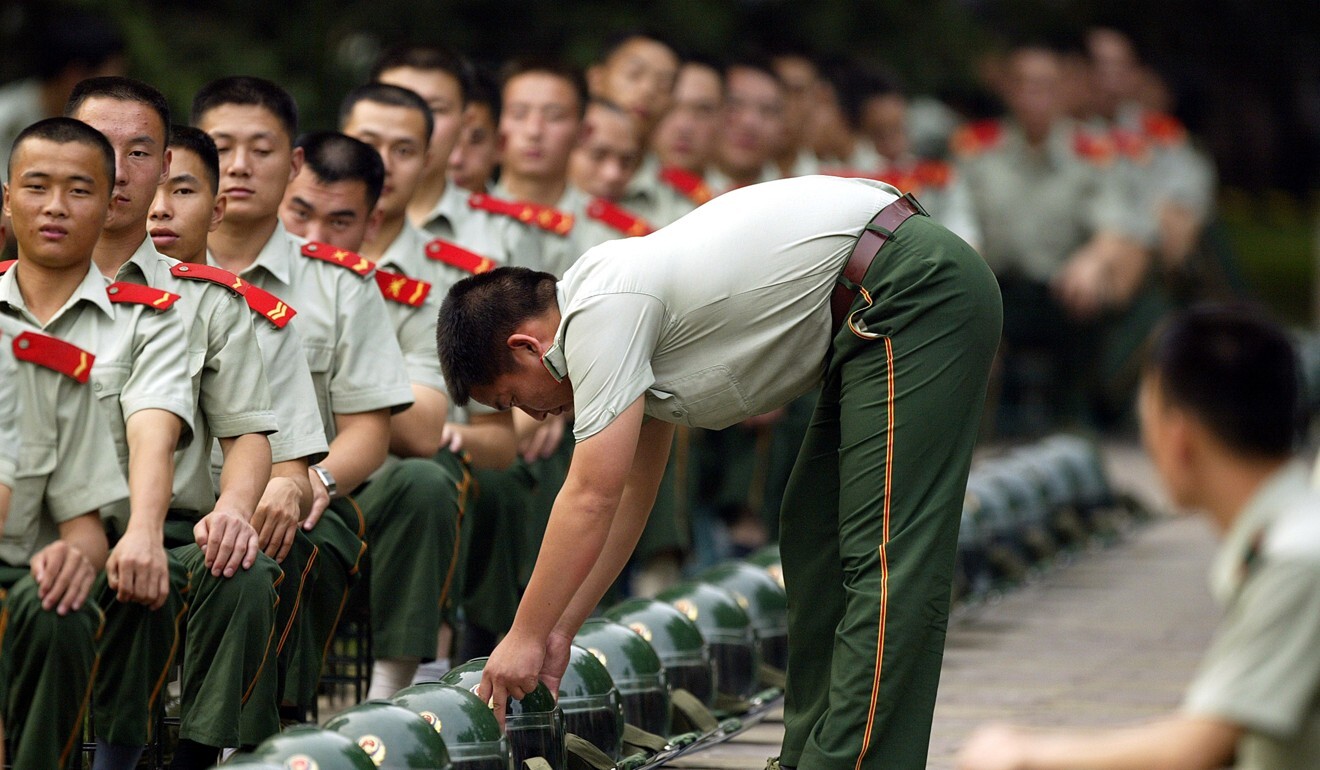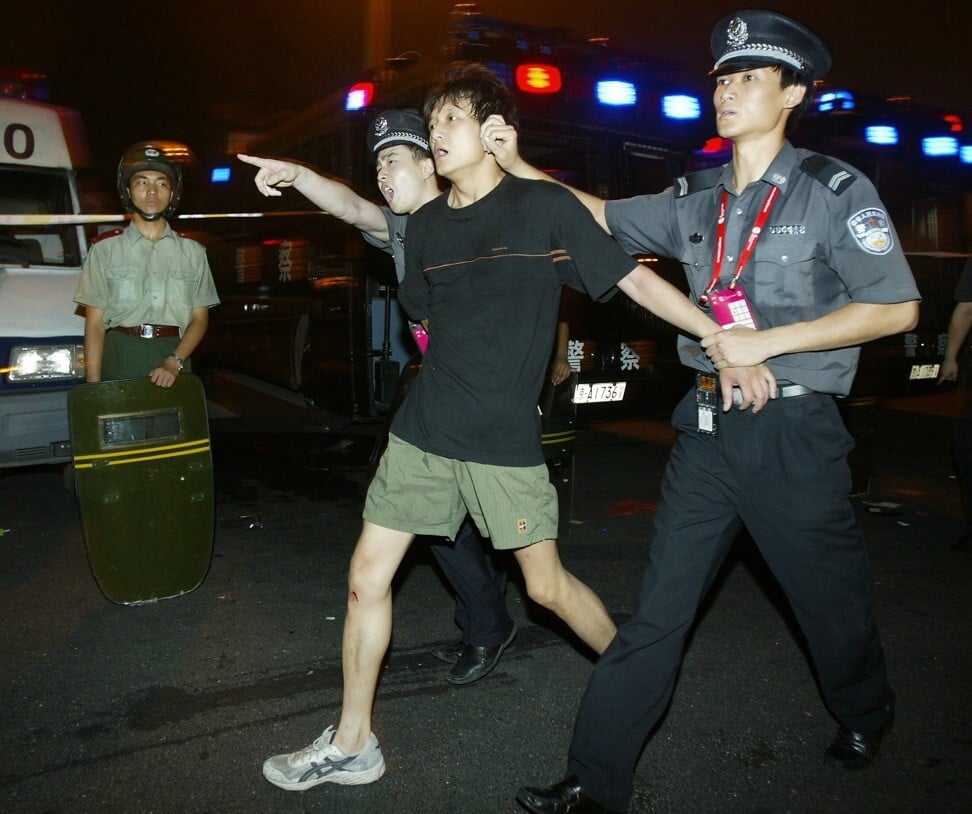
On this day: Beijing riot follows China’s loss to Japan in 2004 AFC Asian Cup final
- Supporters hurl abuse and bottles at riot police outside Workers’ Stadium after controversial 3-1 defeat to the title-holders
- Tensions build before the game with players and politicians calling for calm
It is fair to say tensions were running high at Beijing’s Workers’ Stadium on August 7, 2004, when the hosts met rivals Japan in the AFC Asian Cup Final.
The visitors were the title-holders and had beaten China in the semi-finals in Beirut four years earlier on the way to lifting the trophy. They then won the next two meetings before the showpiece in Beijing, winning in the EAFF Finals and at the Asian Games.
It is an understatement to say that China and Japan have a long-standing history and some of that was reflected in the patriotic home crowd in the Chinese capital, who were there to watch the country’s first AFC Asian Cup final in two decades.
'”’Kill! Kill! Kill!' the Chinese fans yelled. Or, echoing a patriotic song from another era, they shouted, roughly: ‘May a big sword chop off the Japanese heads!’” wrote The New York Times in its match report.

The tournament had not been an easy ride for the holders. Local media reported that fans had surrounded the Japanese team bus in Chongqing, the Republic of China’s wartime capital under Japanese occupation during the Second Sino-Japanese War.
“The atmosphere was always very harsh towards Japan from the Chinese fans during that tournament,” Japan captain Tsuneyasu Miyamoto told the AFC website in 2018 of treatment that spurred the team on. “We just wanted to win; I just wanted to raise the Asian Cup.”
“Our target was to play against China in the final in Beijing. Everybody booed us, so we were so motivated. The time has come! We knew we would win the game, because of this. We had to.”
It was as bad for Japan’s supporters as their players. “Before the match, the Japanese embassy in Beijing was advising its nationals to avoid wearing the national team’s blue shirts, and to keep a low profile,” the BBC reported.
Such tensions were not lost on either government, with both pleading for calm before the game.
‘May 19 Incident’ – when Hong Kong ruined China’s World Cup dream
Even Japan’s prime minister, Junichiro Koizumi, had asked for better treatment for the visitors, while Japanese media were critical of their Chinese counterparts after a politically charged press conference with Japan coach Zico before the semi-final.
China captain Li Weifeng had also appealed for home fans to behave.
“Sport is the symbol of friendship so there are absolutely no political feelings or thoughts involved in our minds,” he said before the decider in Beijing.

It all fell on deaf ears come match day.
Most of the 62,000 sell-out crowd had been in support of the hosts, with only a pocket of around 2,000 Japan supporters. They booed and jeered Japan’s national anthem to the point it was drowned out and kept it up throughout the game.
Japan scored the first goal through Takashi Fukunishi before Li Ming equalised to leave it all-square at half-time.

Then the officials missed a handball from Koji Nakata as he controversially put Japan ahead in the 65th minute before Keiji Tamada sealed it in injury time.
“After Japan’s third goal, the atmosphere in the stadium turned hostile and the stadium’s PA system blasted static at full volume to drown out a constant wave of obscenities during the cup presentation ceremony,” CNN wrote.
Angry fans battled with riot police outside the stadium around the North Gate, throwing bottles at them and the Japan team bus while hurling abuse. Japanese flags were set ablaze and patriotic songs were sung at the reported 6,000 riot police assigned to the game.
Football matches that have gone down in infamy
The violent scenes kept the Japanese in their seats for hours after the final whistle, and anger was not confined to the Workers’ Stadium, CNN reported.
“Hundreds of Chinese fans then gathered outside the hotel where the Japan team were staying, shouting nationalist slogans,” they wrote.
“There was a major police presence at the hotel and also at the Japanese ambassador’s residence. The road outside the Japanese embassy was cordoned off.”
The scenes were reminiscent of those at the Workers’ Stadium 19 years earlier when a shock defeat to Hong Kong in the qualifiers for the 1986 Fifa World Cup in Mexico ended in rioting and international headlines.
While ESPN went with “‘Hand of Koji’ brings Japan third title”, others focused on the fans’ behaviour. “In Soccer Loss, a Glimpse of China’s Rising Ire at Japan” ran The New York Times in a piece that referenced growing anti-Japanese nationalism on the mainland, with “Chinese riot after Japan victory” (BBC) and “Chinese riot after Japan win final”.
Several more incidents of anti-Japanese sentiment in the following years fuelled fears that the 2008 Beijing Olympic Games may see similar scenes but the worries proved to be unfounded, with the Games going off without a hitch.
China, who has become a regular stop for global sporting events in the years since, is set to host the 2023 AFC Asian Cup.

